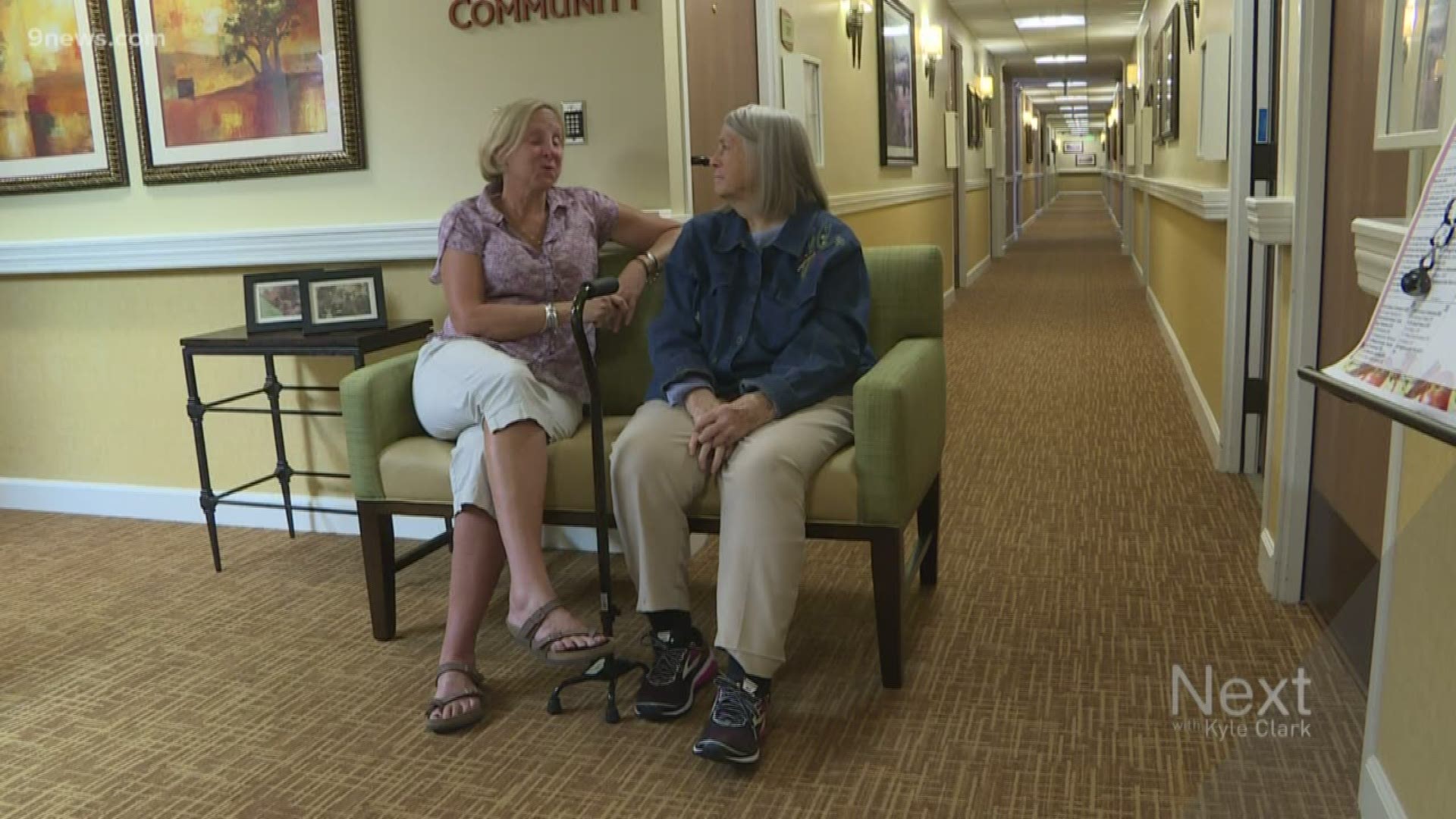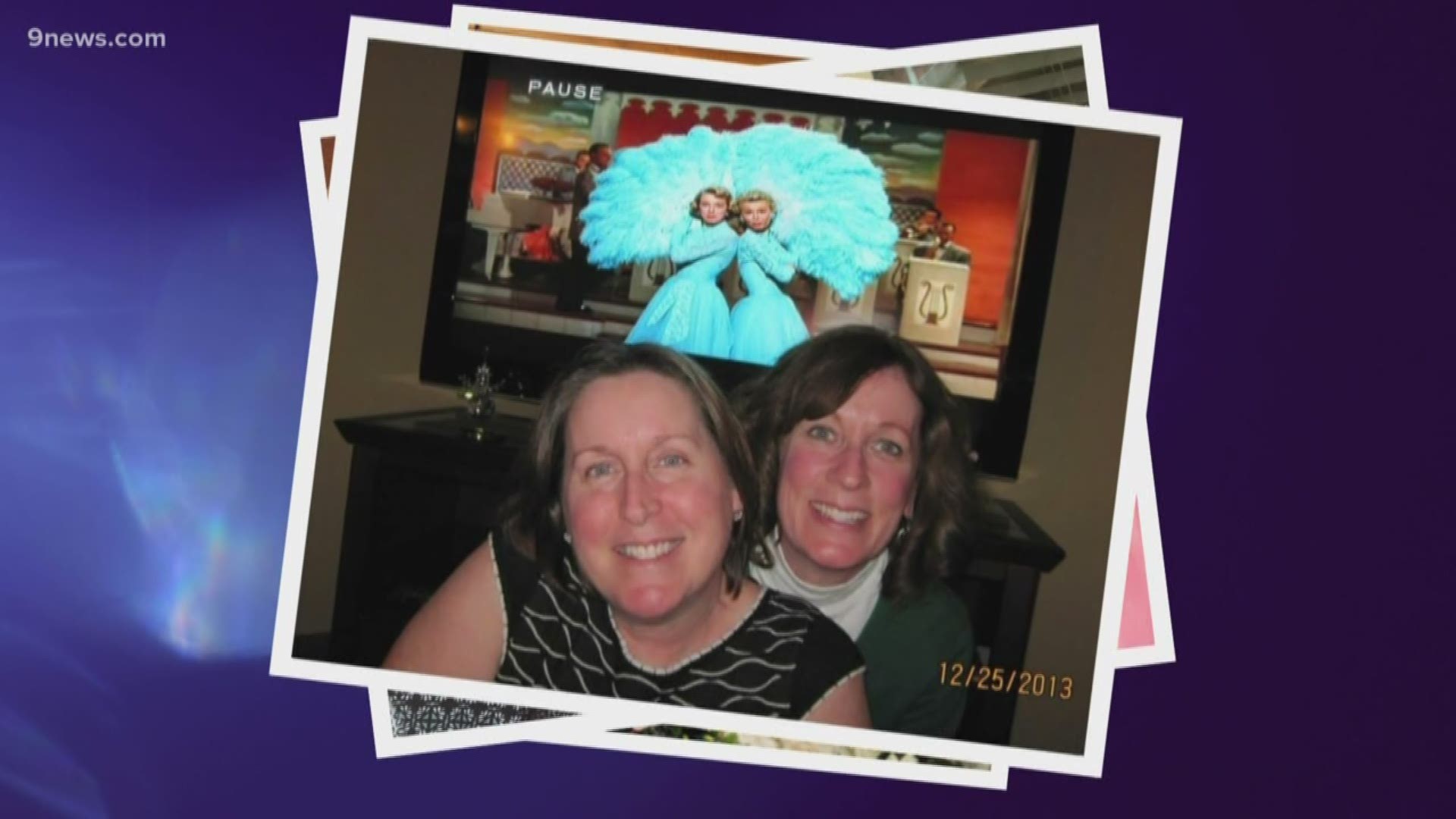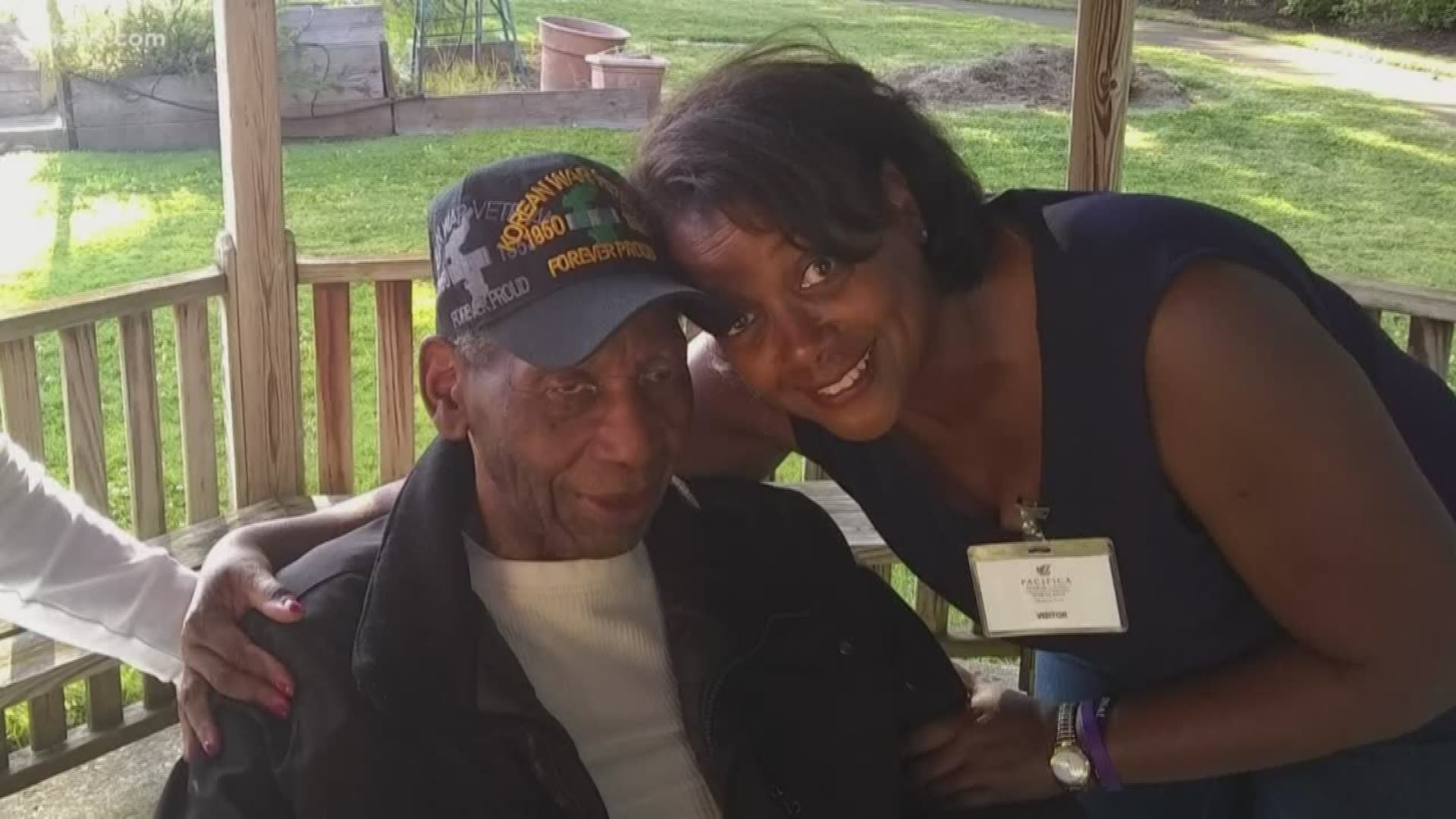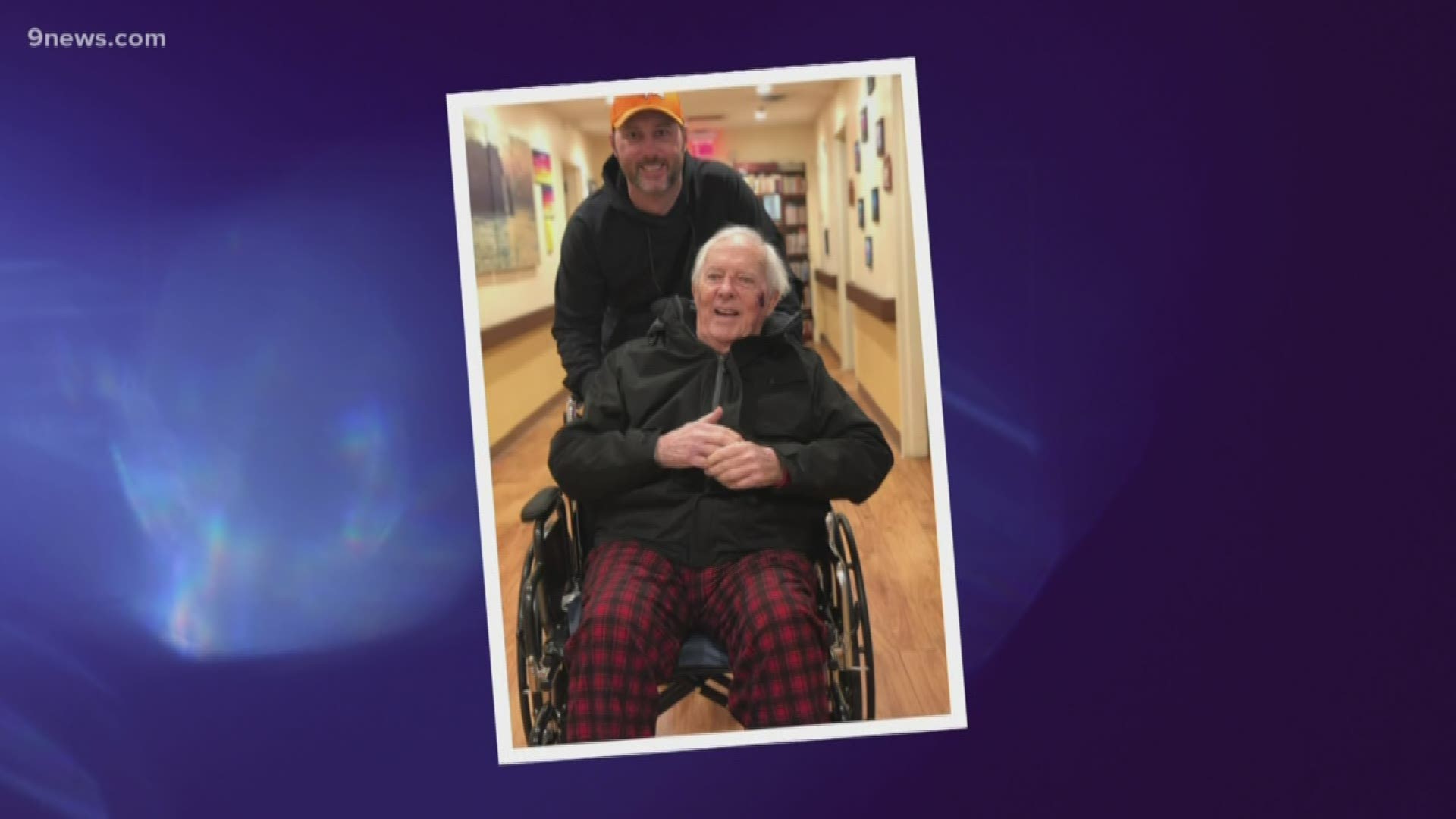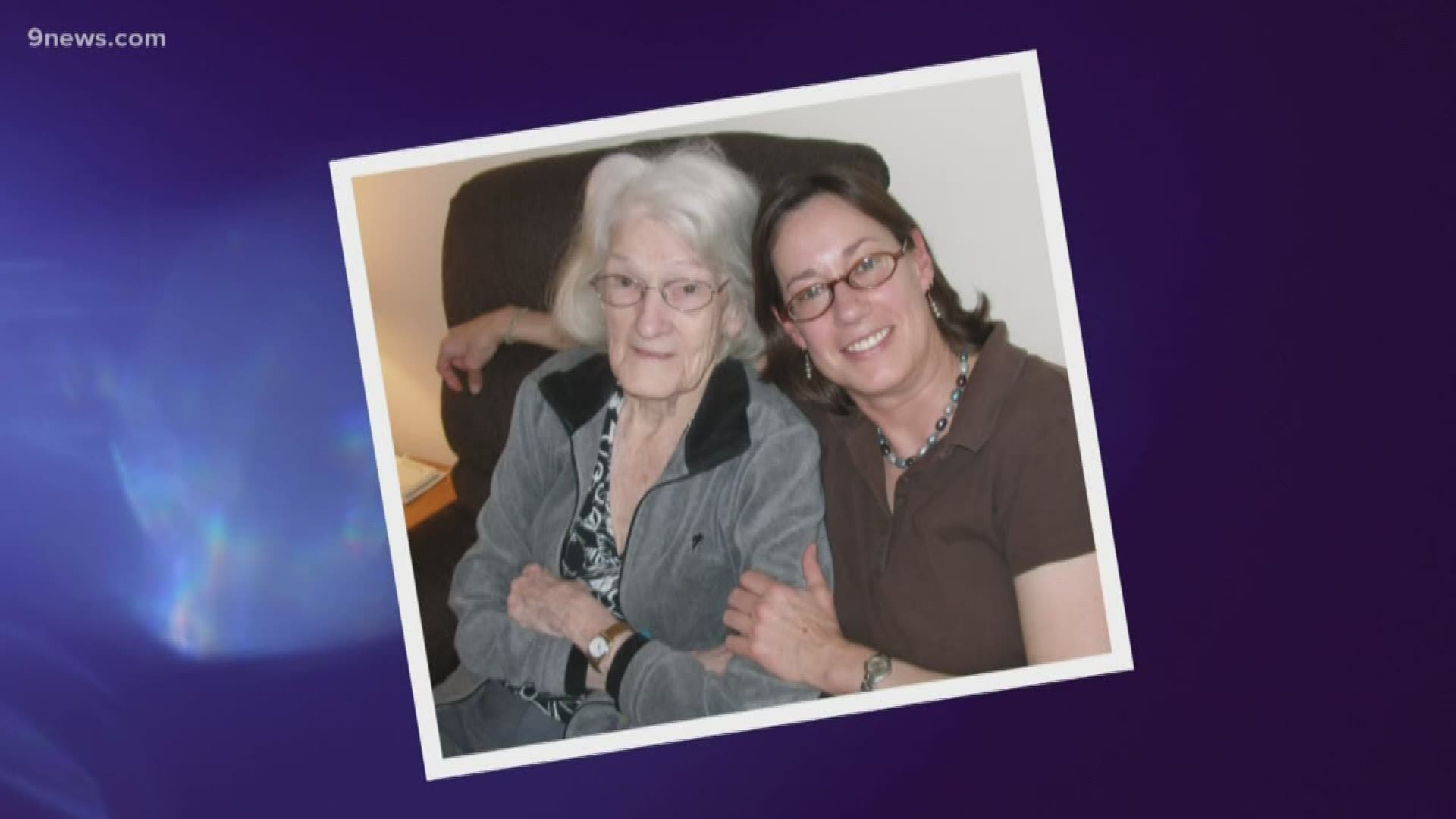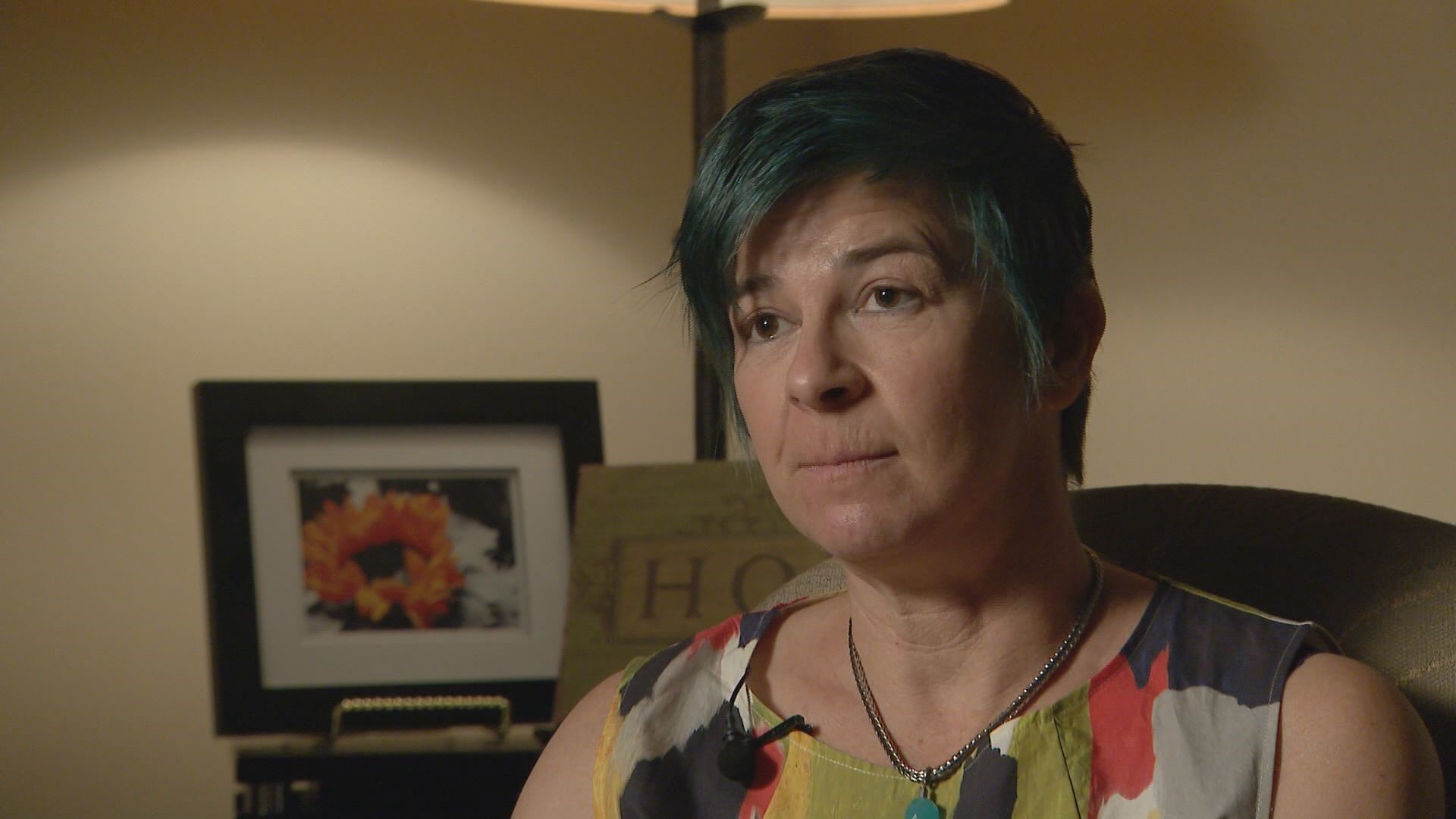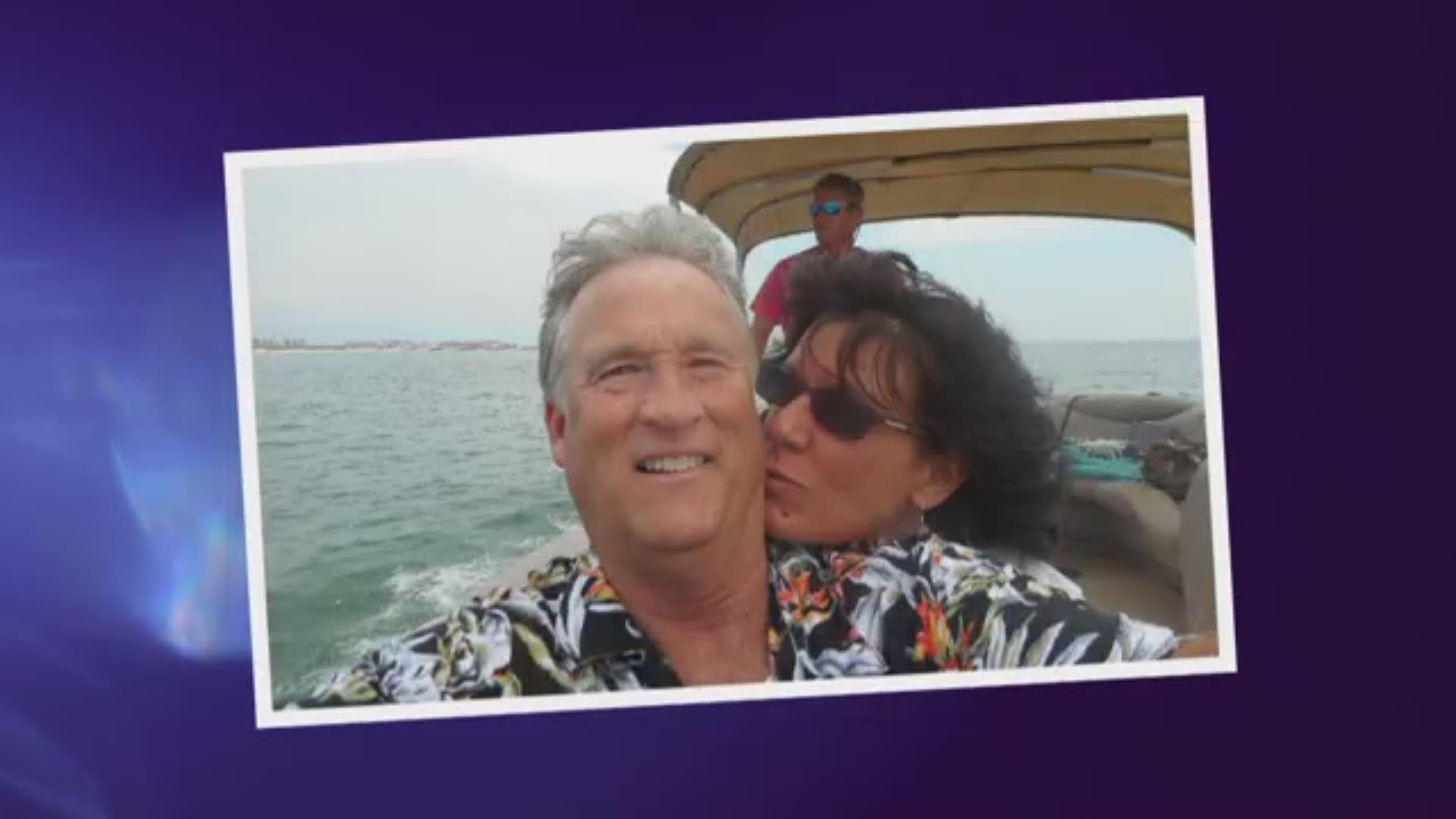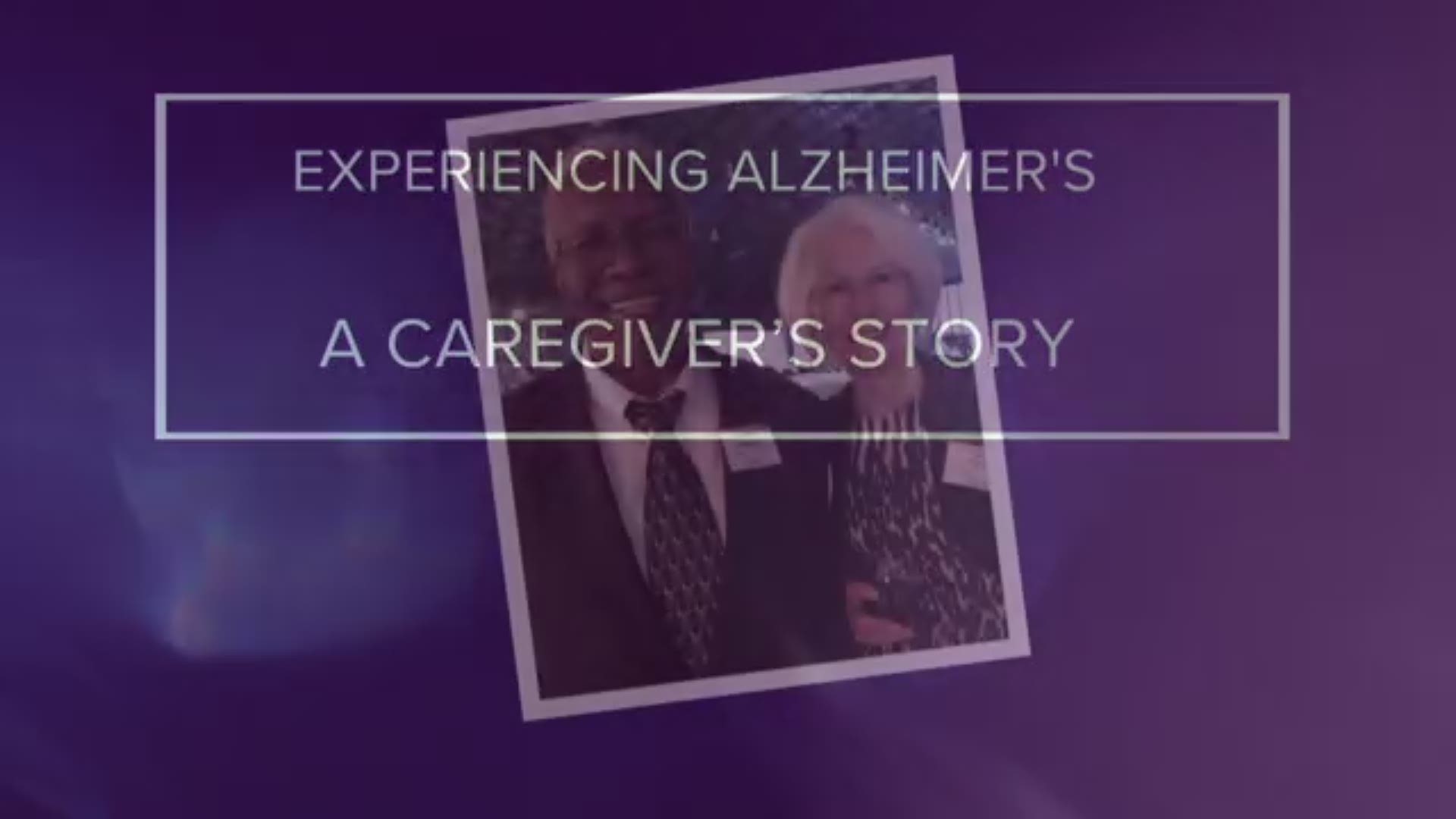DENVER —
This weekend is the Denver Walk to End Alzheimer’s, which will bring hundreds of people to City Park — all in an effort to find a cure for a devastating disease.
It impacts everyone from those who have been diagnosed to the family members who have to care for relatives that feel like they’re slipping.
All this week, 9NEWS told seven stories of people grappling with the disease. Hear from them below.
And if you or a loved one have been impacted by Alzheimer’s, The Alzheimer’s Association helpline is available 24/7 at 1-800-272-3900.
You can also find resources at: alz.org/co.
Kathy Risden
Kathy Risden’s sister was diagnosed with young-onset Alzheimer’s disease when she was 52. Risden quit her job to take care of her sister, who rapidly was unable to take care of herself.
This required flying from Colorado to Illinois three times each month.
“The impact on the family, we had the full circle,” she said. “My parents who are retired are now involved with raising their daughter again. From a sibling standpoint, this was my best friend and I can’t communicate with her for a period of time.
"For her two children that were in high school, that’s awfully young to have a mother who can’t even make dinner for you anymore or get you to your soccer games or your basketball games.”
Risden’s sister passed away this past July. She was 58.
Risden now volunteers for the Alzheimer’s Association — providing help for other families in their time of need, just like the organization did for her.
“You don’t have to do this alone,” she said.
Kimberly Bauer
Kimberly Bauer first realized something was wrong when her dad made a regular visit to his farm in Colorado Springs one weekend. He got lost.
“This was a trip he took every weekend, every day, he knew how to get there,” she said. “When he couldn’t find his way back home, we knew there was something not right with him.”
After her dad was diagnosed with Alzheimer’s, Bauer’s mom became his primary caregiver.
“The impact this has had on my mom is that it's been pretty hard on her – because they've been married for over 60 years,” Bauer said. “He's like her best friend and what she did was she basically wanted to take care of him as opposed to taking care of herself.
"She had a heart attack, and with the stress of her taking care of my dad, you can see it taking a toll on her."
Bauer and her mom turned to the Alzheimer’s Association for help, and she now volunteers for the Alzheimer’s Advocacy program, all in an effort to find a cure for the disease that had such an impact on her family.
Tim Glennie
Tim Glennie’s dad was diagnosed with Alzheimer’s in 2006, when he was 74 years old. The symptoms began four years before that.
“We’d go rent a house in the mountains, plan on a day’s worth of activities,” he said. “We’d talk in the mornings about what we were going to do, we’d all talk, finish eating breakfast and get ready, and as we were getting ready in the house, my dad would be like, ‘No one told me what we are doing.' He would get upset.”
Glennie said he had to come to terms with his father’s diagnosis and give up any arguments from the past. His mother, meanwhile, took care of his father in Texas, which proved to be too much.
“The impact, the wear of someone constantly asking what’s going on, 'When are we going to eat dinner?' and they ask that just 10 minutes after they ate dinner, and constantly ‘Where are we going? Who is this person I’m talking to?’” Glennie said. “The mental toll that takes is just incredible.”
His parents moved to Colorado, and Glennie’s dad was placed in a memory care facility.
Glennie, meanwhile, reached out to the Alzheimer’s Association, which supported his family when they needed it the most.
Glennie’s dad died in 2018.
“I found out about the Walk to End Alzheimer's and I was like, 'Wow, there's something I can do to contribute and support my dad and honor him by walking in honor of him and raising money and awareness,” Glennie said.
Kay Conger
Kay Conger said her family’s experience with Alzheimer’s goes back generations.
“Primarily most of these men were affected by the disease in their 50s and were gone by the age of 75, as was my father,” Conger said. “... it’s really hard to see a confident, friendly, strong, good man start to dissolve really.”
Her mother took care of her father 11 years before his death. Conger would travel back to Ohio at least once a month to help.
“It was extremely stressful; he was a hard man to manage, with a lot of behaviors in the night, taking the car, coming home with mysterious scratches and dents,” Conger said. “One time he took the dog for a walk and came home with somebody else’s dog."
Once her father started to become violent, Conger’s family decided to place him in a memory care facility.
Conger now volunteers for the Alzheimer’s Association, and helps people practice patience with their loved ones.
“A heart-forward approach, compassionate to probably the worst struggle any family is going to deal with in a lifetime,” she said.
Madeline O'Connell
Madeline O’Connell’s mother was diagnosed with Alzheimer’s in her 60s. Years before that, O’Connell said her family used to poke fun at her mom, joking she wasn’t paying attention when they told her things.
“Looking back, we realized it was the disease,” O’Connell said.
O’Connell’s parents were living in Iowa at the time, and she said she ultimately rented an RV and drove them back to Denver so she could take care of them.
“They stayed in a memory care facility together, and had some beautiful last years of their lives,” she said.
O’Connell’s mother lived with the disease for nearly two decades. Her dad died three years ago.
“One day he turned and looked at me and asked, 'How do you think your mother’s doing?’” Connell said. “I wanted to be honest, so I said I think she’s going downhill a little bit. And he says, ‘I can’t tell; to me she’s just as beautiful as she’s ever been.”
Now, friends reach out to O’Connell to ask for her advice.
“There’s a lot of practical things you can learn by talking with someone who’s been through this,” she said. “Or talking with a few people that have been through this.”
Joanna and Forrest Fix
Joanna Fix was 42 when she was diagnosed with Alzheimer’s. A former college professor, she wants to help teach other people about the disease.
“I don't feel sick when I'm talking about this to other people, and I'm really able to talk about the mysterious language of dementia,” Fix said. “It's a mystery, and I want to help solve that mystery for people.”
Her husband, Forrest Fix, has been by her side since she started having trouble back in 2010.
“My response to her was, 'Well now we know what we're dealing with,' before we had no clue,” Forrest Fix said.
The couple gets support from the Alzheimer’s Association, and they recommend other people do the same.
Jan McIntosh
Up until six years ago, Jan McIntosh thought her husband’s memory loss was because of a stroke he had years earlier. It wasn’t until later they learned it was Alzheimer’s.
“Not an acute situation, but a long, slow decline attributed to Alzheimer’s,” McIntosh said. “It helped us begin to understand what that might mean for the future.”
McIntosh cared for her husband at home until he died — five years after his diagnosis.
“He would lose capacity, and then would plateau and seem to do okay for a while,” McIntosh said. “While we adjusted as he was making changes, we just kept trying to figure it out.”
She recommends that people who have family members with an Alzheimer’s or dementia diagnosis continue living life as fully as they can.
“Get help, get support, educate yourself through reading, support groups,” McIntosh said. “Really capitalize on it because you don’t want to go through this alone.”
SUGGESTED VIDEOS | Local stories from 9NEWS

